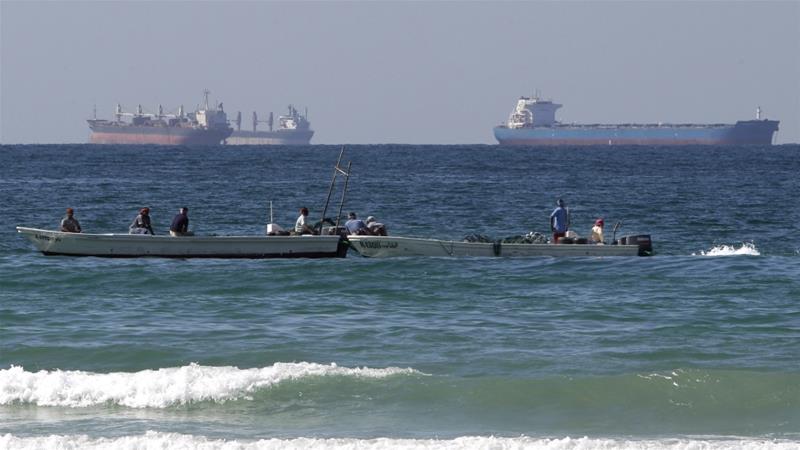Saudi suspends oil exports amid conflict
July 26, 2018 | Expert Insights

The world's top oil exporter,Saudi Arabia has temporarily suspended all oil shipments through the Bab al-Mandeb Strait after attacks on two crude-carrying vessels by Houthi rebels in Yemen.
Background
The Kingdom of Saudi Arabia (KSA) is a sovereign Arab state that shares borders with Jordan and Iraq to the north, Kuwait to the northeast, Qatar, Bahrain, and the UAE to the east, Oman to the southeast and Yemen to the south. It is the only nation with both a Red Sea coast and a Persian Gulf coast.
Since the discovery of petroleum in March 1938 followed up by several other finds in the Eastern Province, Saudi Arabia has become the world's largest oil producer and exporter, controlling the world's second largest oil reserves and the sixth largest gas reserves. The country is a monarchical autocracy and has the fourth highest military expenditure in the world .In 2008, Saudi Arabia with more than 260 billion recoverable barrels, which amounts to around a fifth of the world’s stock, said it will supply the world with fossil fuels for decades to come. However, it plans to add renewables to the mix.
Yemen, one of the world’s poorest countries in the world, has been devastated by the war between forces loyal to the internationally recognized government of President Mansour Hadi and those allied to the Houthi rebel movement. The increasing political instability in Yemen after the civil war in 2011 has paved the way for the Houthi, representing the Shiite minority to take over the territory.The Saudi-led coalition has been carrying out air strikes against the Houthi rebels for more than 2 years now. Since then, the country has been plunged into a civil war in which the exiled government backed by Saudi Arabia is trying to defeat the Houthi group aligned with Iran.
Analysis
Aramco, the Saudi Arabian oil company, released a statement yesterday regarding the attack on two Bahri VLCC, each with a two million barrels capacity, that transports the company’s crude oil. The statement said, “In the interest of the safety of ships and their crews and to avoid the risk of oil spill, Saudi Aramco has temporarily halted all oil shipments through Bab El-Mandeb with immediate effect.” The attacks are said to be carried out by the Houthi rebels yesterday in the Red Sea. One of the ships sustained minimal damage, however, no injuries nor oil spill have been reported.
The Bab al- Mandeb strait which is currently caught midst the attacks of the Houthi rebels is an extremely significant component of global trade. The strait is only 20 km wide, making hundreds of ships potentially an easy target.Most exports from the Gulf that transit the Suez Canal and the SUMED Pipeline also pass through this strait. An estimated 4.8 million barrels per day of crude oil and refined petroleum products flowed through this waterway in 2016 toward Europe, the United States and Asia.
Brent crude futures had risen by 0.6% to $74.40 a barrel by 0247 GMT, after gaining 0.7% on Wednesday.“The announcement this morning that the Saudis have closed some shipping lanes in the Gulf because of rebel Houthi attacks also gives the bulls something to launch off,” said Greg McKenna, chief market strategist at AxiTrader.The rise in price was also supported by data showing US crude oil inventories at an all time low since 2015.
Bob Cavnar, an oil industry expert said,"Even a small shortage - like two or three million barrels of oil a day - could have a substantial effect on crude and that causes an accordion effect throughout global economies. So it could have a long-term effect." He added, "Clearly this is going to have an effect on global shipping. Any kind of danger to shipping and crews is going to cause a major disruption until the threat is neutralised."
The attacks and temporary suspension of oil exports, which is in high demand amongst global powers could invariably force other countries to step into the devastating effects of the Yemen war.Energy consultant, Ellen R Wald said, "The Red Sea is a very important shipping lane. If there is a major disruption European powers, Egypt and the United States would all have reason to intervene."
Impoverished Yemen has been wracked by violence since 2014, when the Houthis overran much of the country. However, on June 13, Yemeni government backed by the military alliance waged an operation to retake the Hodeidah’s strategic seaport from the Houthis. Since the start of the Hodeidah offensive, more than 121,000 people have fled the city, according to a United Nations report.
Assessment
Our assessment is that even a minor delay in the delivery of crude oil from Saudi Arabia will have serious repercussions on global supplies and economies. Considering that the announcement to suspend oil shipments has already added $1 to the cost of one oil barrel on the stock market due to which India will have to spend Rs.9,200 crores more this year, we feel that if the situation persists it could call for international intervention. We believe that the Saudi Arabia government should tighten security in the Bab al-Mandeb Strait and resume shipment at the earliest.








Comments